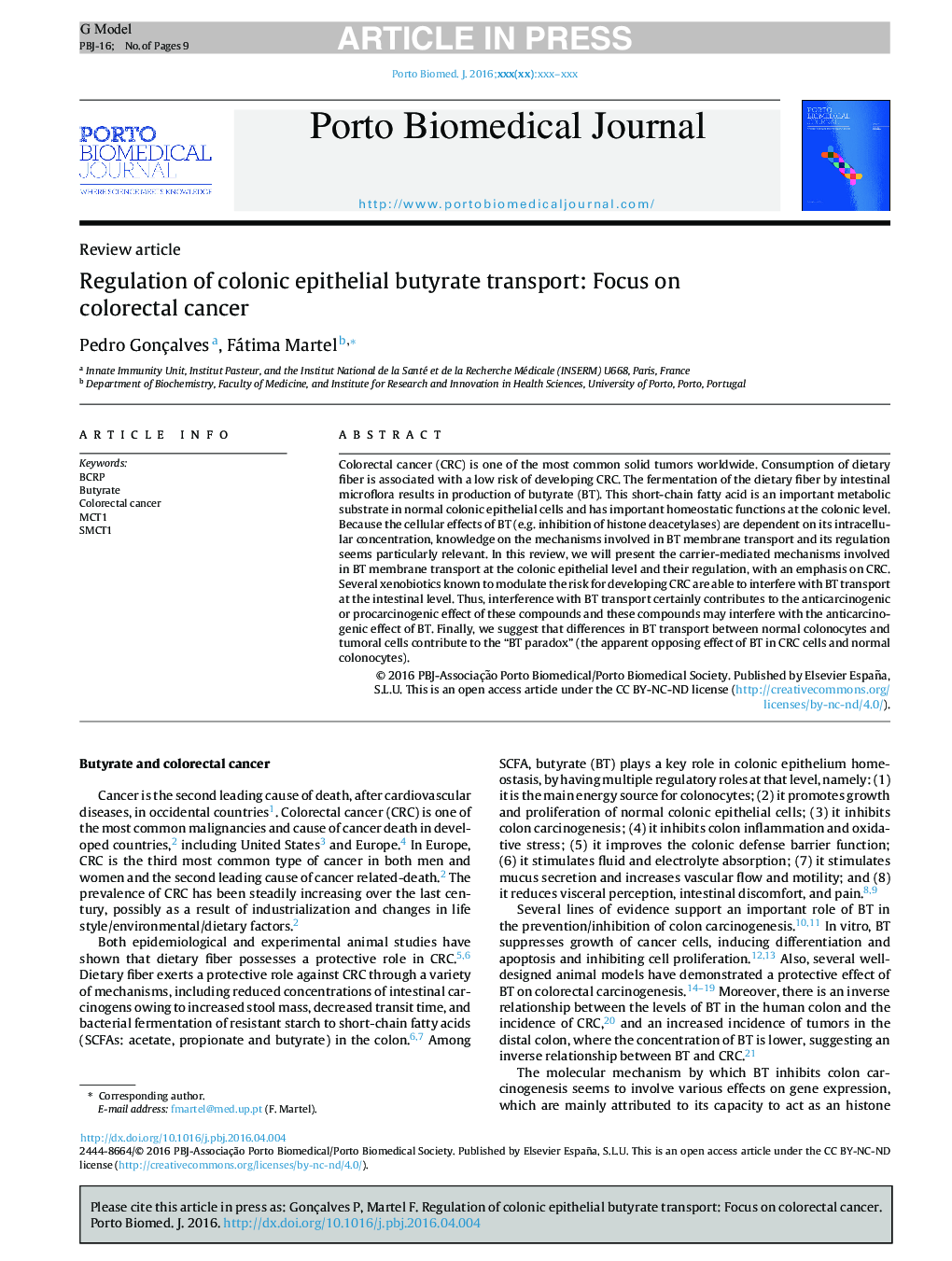| Article ID | Journal | Published Year | Pages | File Type |
|---|---|---|---|---|
| 8766075 | Porto Biomedical Journal | 2016 | 9 Pages |
Abstract
Colorectal cancer (CRC) is one of the most common solid tumors worldwide. Consumption of dietary fiber is associated with a low risk of developing CRC. The fermentation of the dietary fiber by intestinal microflora results in production of butyrate (BT). This short-chain fatty acid is an important metabolic substrate in normal colonic epithelial cells and has important homeostatic functions at the colonic level. Because the cellular effects of BT (e.g. inhibition of histone deacetylases) are dependent on its intracellular concentration, knowledge on the mechanisms involved in BT membrane transport and its regulation seems particularly relevant. In this review, we will present the carrier-mediated mechanisms involved in BT membrane transport at the colonic epithelial level and their regulation, with an emphasis on CRC. Several xenobiotics known to modulate the risk for developing CRC are able to interfere with BT transport at the intestinal level. Thus, interference with BT transport certainly contributes to the anticarcinogenic or procarcinogenic effect of these compounds and these compounds may interfere with the anticarcinogenic effect of BT. Finally, we suggest that differences in BT transport between normal colonocytes and tumoral cells contribute to the “BT paradox” (the apparent opposing effect of BT in CRC cells and normal colonocytes).
Keywords
Related Topics
Health Sciences
Medicine and Dentistry
Medicine and Dentistry (General)
Authors
Pedro Gonçalves, Fátima Martel,
